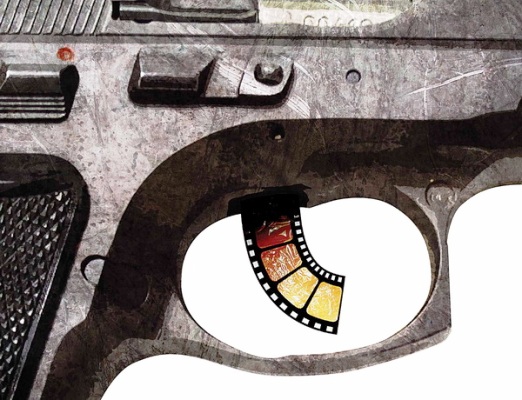Header: Alef [The first letter of the Persian alphabet] is a well-known news website run by Dr. Ahmad Tavakkoli, an influential Iranian politician. He has studied economics and received a Ph.D. from the University of Nottingham in the UK. He is a [Tehran] MP and has been the director of “The Research Center of the Islamic Consultative Assembly” for years.
The world, the Middle East included, is witnessing many [unspeakable] crimes committed against humanity these days, one day in Libya and Ukraine, and the other in Iraq and Syria. Killing people seems to have become a recreation [for some]. Killers and terrorists hold up their head and proudly film their crimes and release their masterfully-edited videos via advanced communications tools.
It is almost a year since the brutal ISIL militants eclipsed their predecessors, namely al-Qaeda and their fellow Takfiri groups, and first released [online] images of their crimes. There are few Iranians who have not watched these horrible
clips. Most of them have downloaded these horrific images on their cell phones. Unaware of its ramifications, media outlets do release scenes of such horrendous crimes, too.
At issue here are the mental and social aspects of releasing these videos. It is good to know that any re-sending and re-releasing of such videos would help the terrorists with their goals.
The release of these graphic images which depict the crimes committed by the ISIL terrorist group, for instance their execution and decapitation of people, has made societies more likely to take away the wrong lesson from these acts of violence. It could result in children imitating these [unthinkable] scenes. Images of children who are copying the way ISIL treats its prisoners have already been splashed across social networking sites.
The more striking – let’s say more regrettable – point is that some keywords such as “ISIL”, “ISIL crimes”, “beheading”, etc. have played into the hands of certain websites, especially downloading sites, which aim to pull in more visitors and raise their [global] rankings. In other words, a destructive and dreadful phenomenon has turned into a tool for some media to take in more and more customers, mostly children and teenagers.
Alef News Website (www.alef.ir) on October 1st posed the following question to two experts: How does watching these videos affect [Iranian] society? The following are the responses the two experts produced:
Dr. Vahid Shalchi, a sociologist and member of the Faculty of Social Sciences at Allameh Tabatabai University, says: “We need to distinguish between different audiences. As for children, teenagers and even young adults, the spread of this phenomenon – watching videos posted on the web – would be alarmingly worrisome. The Middle East region is witnessing countless violent acts these days thanks to outside interferences and internal differences.
“The fact that watching such images is likely to present itself in the form of individual deviation should be cause for overriding concern. It could lead to many negative consequences for children and teenagers, ranging from psychological repercussions to large-scale violence. Countries all over the world have established [rigorous] standards to bar children and teenagers from watching these violence-riddled scenes.
“Unfortunately, such standards are conspicuous by their absence in Iran; and to add insult to injury, the development of technology has made it all the more difficult to keep a close eye on these [harmful] images. As a result, any product would be available to people in different age groups and this incurs substantial losses. For those people frequently watching such scenes, violence and crime become a normal sight, so when an individual gets engaged in minor or petty disputes, s/he would try to repeat the scene s/he has already seen many times.”
Dr. Abhari, a sociologist and behavioral psychologist, says: “When murder is introduced as a pastime and weapons as a plaything in society, and the extreme scenes of murder and rape in video clips together with violent acts in satellite TV movies become appealing to the youth, from a psychological point of view, people find it as interesting as a hobby or a way to while minutes away to be unmindful of death and downplay tragic, bloody scenes.
“Almost 80 percent of those who trade and watch these films are young people between 13 and 25 years of age. In the past when such online pictures were nonexistent, teenagers and young adults could not stand watching the sight of an animal being slaughtered, but today they simply watch [shocking] scenes of human beheading with their emotions, thoughts and soul remaining unaffected. This ineffectiveness is just on the outside of course.
“The profound impact of these [chilling] scenes stays in the back of people’s minds, something which would leave a deep impact on them in the form of nightmares, stress and depression down the road. Even if these scenes do not make people erupt, they would result in indifference on the part of their viewers making them easily watch and repeat the [unpleasant] scenes.
“These films which contain extremely horrible scenes change hands in society. In other countries when they want to air such scenes in a TV news bulletin, a warning [saying: ‘viewer discretion is advised’] notifies the audience of the graphic content of the movie or news story telling them the children may find the following images shocking. But in our country no control is imposed on such content and this is to blame for a growing rate of violence, physical aggression and murder in Iranian society.”
